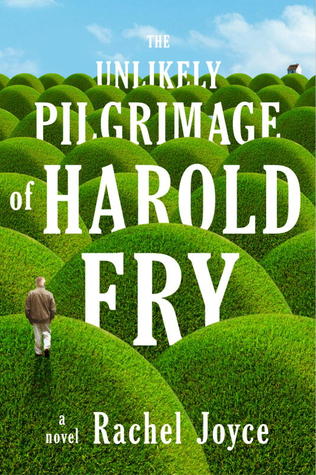While I was reading The Unlikely Pilgrimage of Harold Fry, I realized how much I enjoy journey narratives, where a character sets off on a trip to find something they lost or gain something new (happiness, courage, love, humanity, etc.).
Harold Fry has no intentions of making such a trip. He is a retiree who only ever walks to his car. He doesn’t have any hobbies or interests or even ambition. One day he receives a letter from his old friend Queenie, who is dying, and he very suddenly, with no warning or planning, decides to walk to her bedside. If he achieves his goal, he has weeks upon weeks of walking ahead of him from the southwest of England to the Scottish border in ill-fitting shoes without a cell phone.
The narrative alternates between Harold and his wife, Maureen. She is left behind, mystified at first by her husband’s quest. Years of grief have buried their marriage in resentment, pity, and sadness. They are barely civil to each other. She undertakes a tremendous emotional journey of her own, even though she stays at home.
This is a “quiet” novel, one that relies on a slow span of unraveling backstory so the characters can be changed by their journeys, and we can witness that change. There are no forehead-smacking epiphanies or sneaky light-bulb moments. It’s an accumulation of small moments along the way that allow Harold and Maureen to open themselves to other possibilities.
There are echoes of the original journey narrative, The Canterbury Tales, and John Bunyon’s The Pilgrim’s Progress. Harold is an Everyman whose journey is prone to pitfalls and distraction and despondency. He is both heroic and mundane.
Harold and Maureen remind us that it’s never too late to change your path, save a marriage, make new friends, find your purpose.
Four hearts for this one. ♥ ♥ ♥ ♥
*Affiliate link. If you make a purchase through this link, I’ll receive a small compensation. It is absolutely no cost to you.


